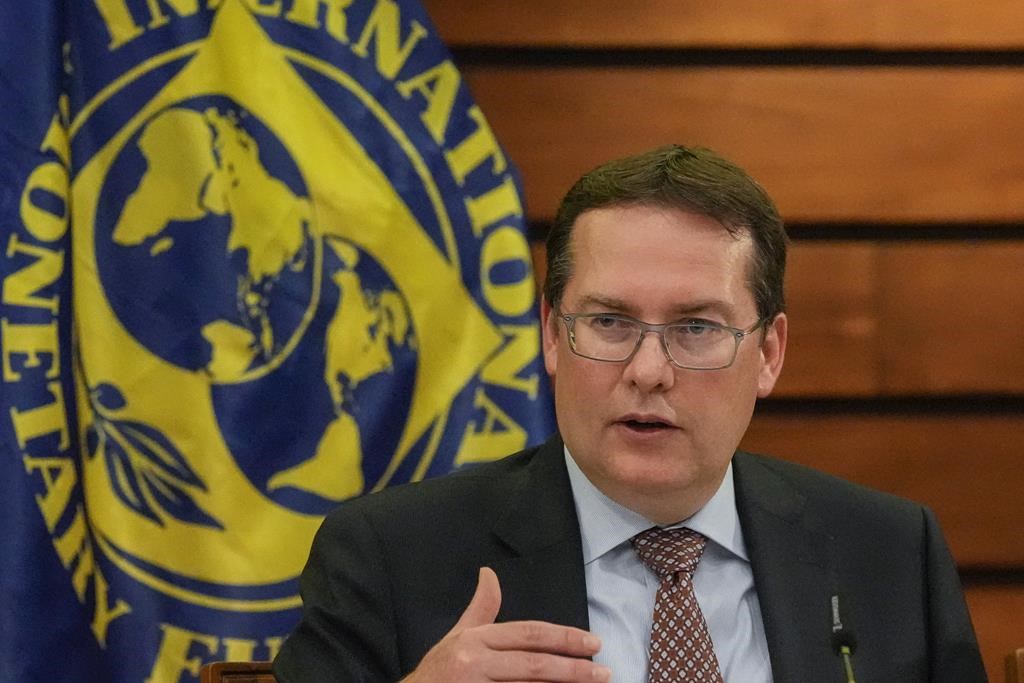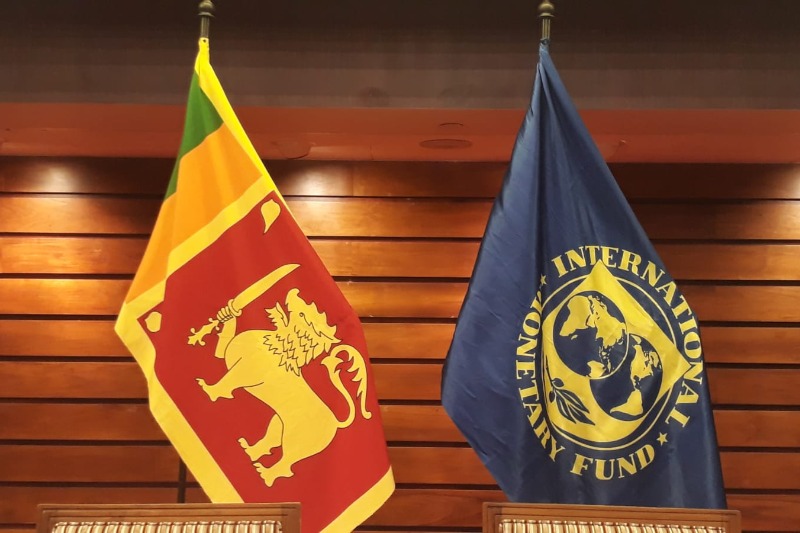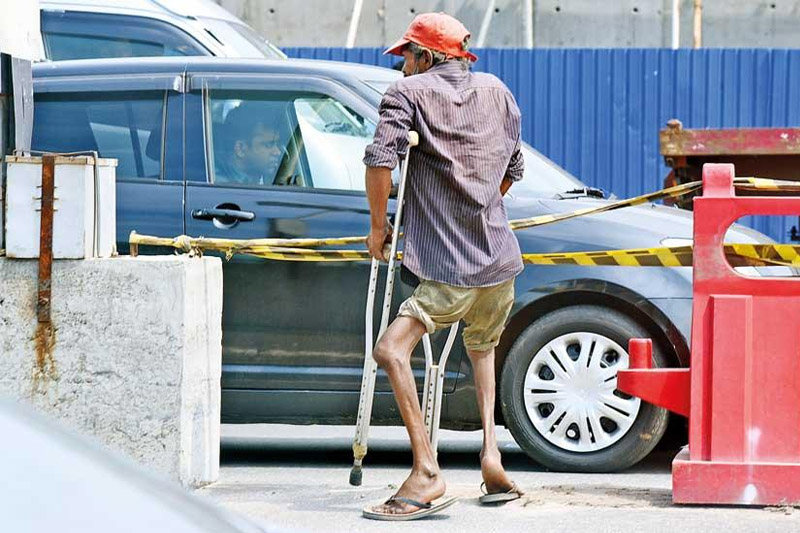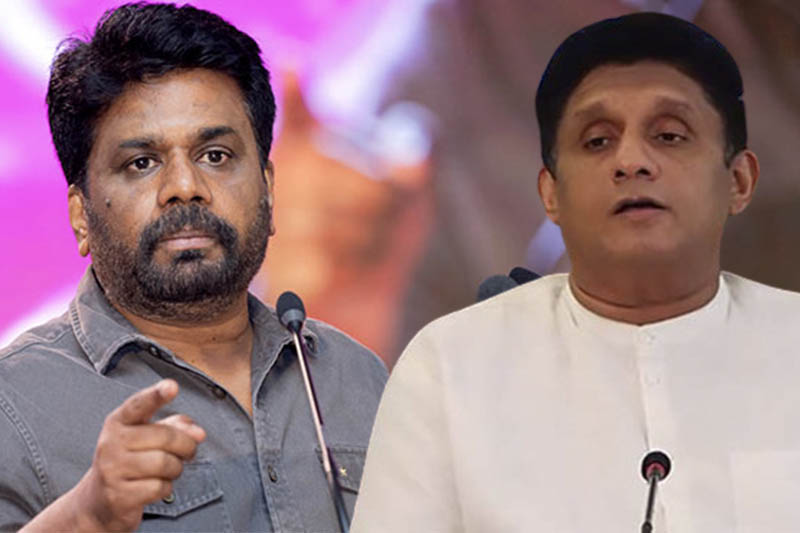Sri Lanka is facing difficulties over securing the second tranche and completing the first review, due to falling short in keeping two main promises they made to the International Monetary Fund (IMF) when agreeing to a bailout package in March.
The country had fallen short on two important components in securing the second tranche and completing the first review, said the IMF.
It had also warned that full economic recovery is not assured under the present circumstances.
Failure in completing the enactment of policies to achieve the objectives of the program to an acceptable level and failure in showing a clear path towards restoring the country's debt sustainability has led to this uncertainty, which pose great threats towards the future of the island nation.
This latest situation update was revealed during a press brief held by the IMF staff on the First Review Mission for IMF-supported program for Sri Lanka conducted after releasing the first tranche of USD 330 million in March 2023 when IMF approved a USD 3 billion rescue package for the crisis-stricken island nation under an Extended Fund Facility (EFF) Arrangement.
The government confirmed that it could not secure an agreement that would guarantee expected assistance.
In the wake of the first review by the IMF, acting Finance Minister Shehan Semasinghe claimed the government is on the verge of entering the staff level agreement with IMF with regard to the second tranche.
The Minister was optimistic on securing the staff level agreement after conducting those discussions.
Minister Semasinghe told journalists in Colombo that they have not come to a staff level agreement with the IMF yet, and few more points are expected to be discussed, after President Ranil Wickremesinghe returned from his foreign visit.
The vesting IMF team has shown some confidence in the government's effort on enacting policies to achieve the objectives.
 Peter Breuer
Peter Breuer
“So for the IMF program to move to the next step of completing the first review and dispersing the second tranche, two important components are needed. One is to agree with the authorities on a set of policies that they can take forward to achieve the objectives so that we can reach staff level agreement for this first review. And we are very confident that we will be able to do that with a little bit more time to continue the discussions,” IMF Senior Mission Chief for Sri Lanka Peter Breuer told journalists in Colombo.
However, when it comes to the second component, the island nation’s path towards restoring debt sustainability, the IMF staff was not convinced by the government’s efforts.
While the President Ranil Wickremesinghe is visiting countries throughout the globe, the IMF staff emphasized that they need to see proper discussions and negotiations are taking place which will result in debt treatments in par with the program.
“And then the second leg that needs to be completed is the discussions on the debt. Essentially, what we need is a clear path towards restoring debt sustainability. For the IMF to be able to go ahead, it needs to convince itself that debt sustainability can be restored. And to do that, we need to convince ourselves that there are discussions, negotiations that will result in debt treatments that will essentially be in line with the debt targets that we had set at the beginning of the program in March. When these debt targets can be reached, that is when we assess that debt sustainability can be restored. And so we need to convince ourselves of the path to that direction.”
On the other-hand, IMF staff made it clear that the IMF-supported program is not a static agreement with fixed deadlines. They continued to explain that in general, IMF programs are dynamic and if any changes to the program are required in order to achieve the objectives of the program it is possible as the same objective can be achieved in different ways.
While replying to a question raised on not taking the banking sector also into the domestic debt optimization program of the government, Peter Breuer emphasized that though the IMF cares about the targets, they care to some extent on how to get there also. He stressed the importance of maintaining financial and social stability for them.
“Because otherwise the problem could just become worse and then these targets don't apply anymore.”
While believing that financial stability is being maintained in Sri Lanka, he continued to explain that the banking sector will be taking the hit anyway due to their exposure to the government, through domestic and external foreign exchange instruments. “Which is why also financial stability is an important part of the program with its own pillar” he added.
The global
In response to a question the stance of the IMF staff on the restructuring of State Owned Enterprises (SOE), Katsiaryna Svirydzenka, the Deputy Mission Chief for Sri Lanka explained that “the objective of the SOE reform is to ensure that SOEs are run on a commercial basis and that they do not accumulate any more additional financial liabilities for the government.”
The Deputy Mission Chief extended her satisfaction on the progress made by the government on this path and noted the action taken to introduce adjustments to the fuel and electricity prices in-order to ensure that SOEs do not accumulate additional losses.
“And also in the summer, the cabinet approved a comprehensive strategy to address the cross holdings of debt across the various SOEs and these are both steps in the right direction,” she added.
However, while commenting on the economic condition of the island nation, IMF staff showed concerns over revenue mobilization and warned that if it does not improve relative to last year, the government would be unable to provide essential services.
Despite the tentative signs of stabilization, “full economic recovery is not yet assured,” Peter Breuer said.
According to the IMF staff, although the government has made progress in implementing difficult but much-needed reforms, the “growth momentum remains subdued”.
“More work still needs to be done to sustain the reform momentum and put the economy on a path towards lasting recovery and economic growth,” the IMF staff report says further.
In its first review of the programme under the Extended Fund Facility (EFF) arrangement, the IMF staff warned about the tax collection problem which affects the expected economic recovery. “Tax collection is a concern in Sri Lanka. It's an important pillar of the program because it's important to sustain the essential expenditures of the government” he added.
IMF staff shows that Sri Lanka’s expenditure and revenue do match to the expected levels and the same would affect the important services provided by the government such as education, health, infrastructure and support for the poor and vulnerable.
“In Sri Lanka, there's a big gap between these two. Expenditures are of the order of 19 or so percent of GDP. Revenue is in the order of 9% of GDP or so, and that gap needs to be filled,” Breuer noted.
If the huge gap between revenue generation and expenditure is not narrowed and efforts taken to recoup the shortfall, it could weaken the government’s ability to provide essential public services and undermine the path to debt sustainability is the stark warning from the review report.
In order to increase the revenues and signal better governance, the IMF staff stresses the importance of strengthening the tax administration, removing tax exemptions, and actively eliminating the tax evasions.
“To accomplish that objective, it's important to have appropriate tax policies and tax administration systems in place,” Breuer said.
While stressing over the decisions taken by Gotabaya Rajapaksa government on tax reductions, the IMF staff noted that the recovery process has put a huge burden on the general public of the country.
“Essentially, the country is now sort of experiencing the consequences of both policies and shocks that happened in Sri Lanka over the past so many years. These are policies that left the country very vulnerable in particular, you know, a very strong tax cut in 2019, the effects of which were then exacerbated by various shocks in the country. So all this culminated in the crisis that was at its depth in the summer last year when we were here also. And so essentially the population is now being asked to help cover the costs and that is very burdensome”.
Economic analysts have constantly pointed out under the guise of war, the military expenditure has been increasing and an unsustainable army is a continuing burden on the state exchequer and the political will to reduce it has never been a priority of consecutive governments.





















